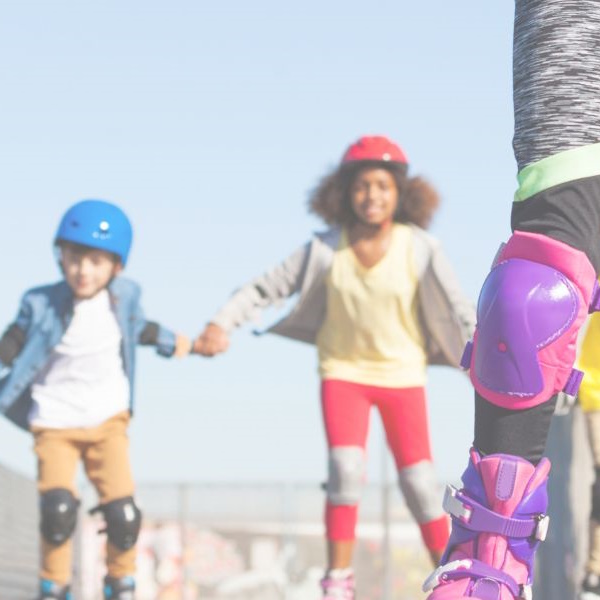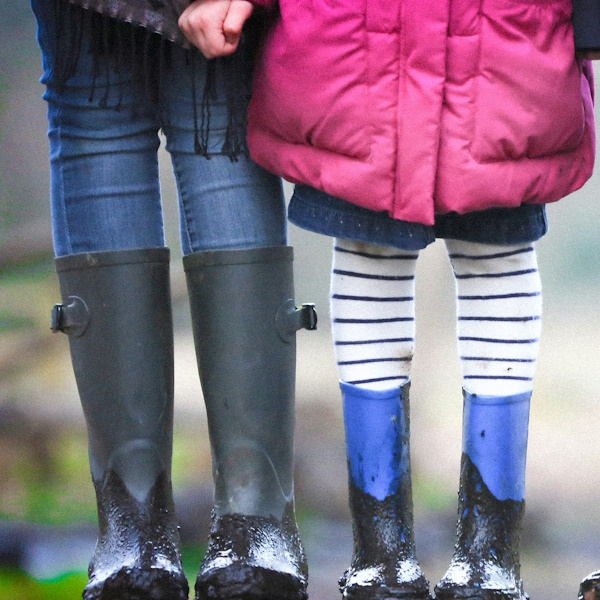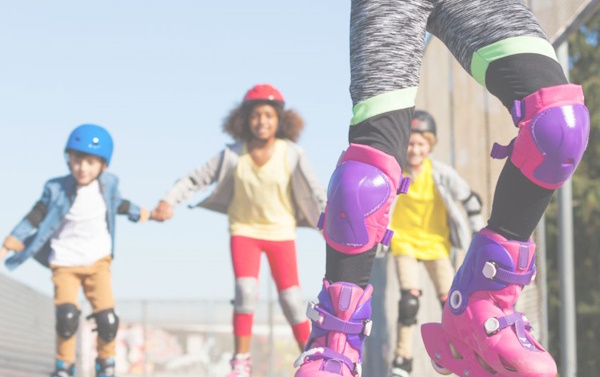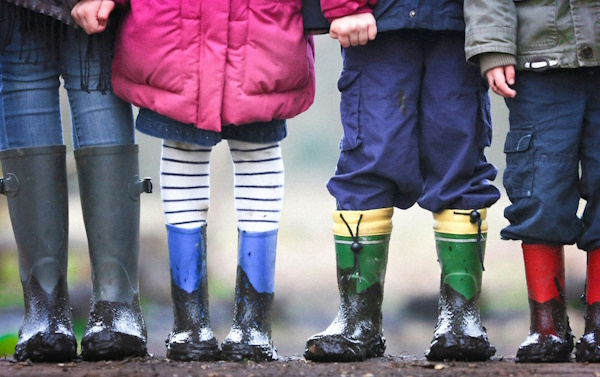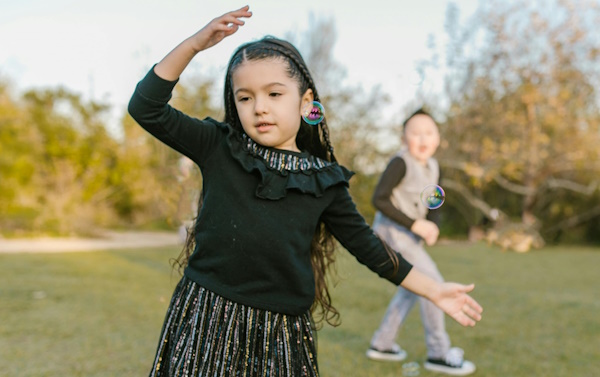Boost Kids' Mental Health Through Physical Activity: A Guide for Parents
In today's fast-paced world, ensuring your child's mental health is as crucial as their physical well-being. You've probably heard about the benefits of physical activity for adults, but did you know it's just as vital for kids? It's not just about staying fit; it's about nurturing their mental and emotional health too.
Physical activity goes beyond just burning off energy. It's a powerful tool that helps kids manage stress, boost their mood, and improve their self-esteem. Whether it's a game of tag, a dance class, or a family hike, moving their bodies can make a significant difference in their overall happiness and mental resilience. Let's dive into how incorporating regular physical activity into your child's routine can pave the way for a healthier, happier mind.
The Benefits of Physical Activity for Kids' Mental Health
Understanding the impact of physical activity on kids' mental health is crucial. When your child engages in regular physical activity, they're not just building muscles; they're also laying the foundation for a robust mental and emotional framework. Physical activity significantly influences the way children feel, think, and behave, making it a cornerstone for their overall well-being.
Stress Reduction and Mood Boost
Firstly, physical activity is a powerful stress reliever. It triggers the release of endorphins, the body's natural mood elevators, promoting a sense of relaxation and happiness. This biochemical process is vital for children, whose daily stressors may range from academic pressures to social challenges. By encouraging regular physical activity, you're equipping your child with a natural tool to combat stress and anxiety.
Enhanced Self-esteem
Physical activity also plays a pivotal role in building self-esteem. As children learn new skills and overcome challenges in sports or physical play, they develop a stronger sense of self-worth. Achievements in physical activities provide a tangible proof of their capabilities, boosting their confidence in their abilities. This enhanced self-esteem is crucial for their mental health, fostering a positive self-image and resilience against negative thoughts.
Cognitive Benefits
Moreover, engaging in physical activities helps improve kids' cognitive functions. It enhances concentration, memory, and classroom behavior, contributing to better academic performance. Regular physical activity is linked to improved neuroplasticity, the brain's ability to form new connections, enhancing learning and problem-solving skills.
Incorporating physical activity into your child's routine is more than just a way to keep them physically fit; it's a strategic approach to nurture their mental and emotional health. As you prioritize physical activity, you'll notice notable improvements in their stress levels, mood, self-esteem, and cognitive functions, laying the groundwork for a happy, healthy mind.
How Physical Activity Helps Kids Manage Stress
Physical activity is a powerful tool for managing stress in kids. When your child engages in regular exercise, their body releases endorphins, often referred to as "feel-good" hormones. These natural mood lifters play a crucial role in reducing stress levels and enhancing overall well-being.
Beyond the biochemical effects, physical activity provides a constructive outlet for releasing built-up tension and frustration. It's common for children to experience stress due to academic pressures, social dynamics, or even the fast-paced nature of today's lifestyle. Participating in sports, dancing, or simply running around the park gives them a physical way to express and relieve these pressures. This diversion not only helps in immediate stress reduction but also in establishing long-term coping mechanisms.
Moreover, being active in group settings, like team sports or group exercise classes, can foster a sense of belonging and support among peers. This social aspect is a vital component of stress management, as it allows kids to connect with others facing similar issues, thus making them feel less isolated in their struggles.
Let's look at some statistics that underscore the relationship between physical activity and stress reduction in children:
| Age Group | Average Time Spent on Physical Activity per Day | Reported Stress Reduction (% of Participants) |
|---|---|---|
| 6-8 | 60 minutes | 40% |
| 9-11 | 45 minutes | 50% |
| 12-14 | 30 minutes | 60% |
Encouraging your child to engage in physical activity doesn't mean pushing them into intense sports unless they're interested. Simple activities like walking the dog, biking, or even helping with yard work can be effective. The key is consistency and finding enjoyable activities that will keep them motivated to move every day.
Remember, your role in fostering a positive attitude towards physical activity can significantly influence your child's willingness to participate. Offering support, celebrating their efforts, and possibly joining in can make all the difference. By integrating physical activity into your child's lifestyle, you're not just enhancing their physical health but also equipping them with an essential tool for managing stress.
Boosting Mood and Self-Esteem through Physical Activity
Physical activity isn't just great for your child's physical health; it plays a critical role in improving their mental health as well. Regular exercise can significantly boost your kid's mood and self-esteem, providing them with a positive outlook on life. Endorphins, sometimes known as happiness hormones, are released during exercise, leading to feelings of joy and a decrease in stress levels.
When your child engages in activities they enjoy, whether it's a team sport like soccer or individual activities such as swimming, they start to feel more competent and confident in their abilities. This sense of achievement contributes to a healthy self-esteem, which is vital for their overall mental well-being.
Here's a quick breakdown of how physical activity impacts mood and self-esteem:
| Activity Type | Mood Improvement | Self-Esteem Boost |
|---|---|---|
| Team Sports | High | Moderate to High |
| Individual Sports | Moderate | High |
| Outdoor Play | High | Moderate |
Beyond the biochemical changes, participating in physical activities provides a platform for kids to socialize and make friends. This social aspect, especially in team sports or group activities, helps reduce feelings of loneliness and isolation, further elevating their mood and self-esteem.
Encouraging your child to stay active doesn't have to be a chore. Highlighting the fun aspect of exercise and turning it into a family activity can make it more appealing to them. Remember, the goal is to find activities that your child genuinely enjoys, so they naturally want to participate. This could mean experimenting with different sports or activities until they find the one that sparks their interest.
Different Types of Physical Activities for Kids
Introducing your children to a variety of physical activities not only keeps their routine exciting but also enables them to discover what they truly enjoy. It's crucial to remember that the best type of activity is one that feels more like play than work. Here, we'll explore some engaging options that cater to different interests and age groups.
Outdoor Adventures: Nature offers an extensive playground for kids of all ages. Activities such as hiking, biking, and even a simple game of tag in the park provide excellent opportunities for physical exertion. Outdoor adventures can spark an interest in environmental stewardship, as well as encourage physical fitness.
Team Sports: Participating in sports like soccer, basketball, or baseball helps kids learn about teamwork and dedication while staying active. Besides the physical benefits, being part of a team can boost self-esteem and provide a sense of belonging.
Dance and Gymnastics: For the child who loves to move and groove, dance classes or gymnastics might be the perfect fit. These activities not only improve flexibility and strength but also enhance coordination and rhythm.
Martial Arts: Martial arts classes offer a unique blend of physical activity, discipline, and self-defense skills. Kids learn to focus their minds and bodies, which can be particularly beneficial for those with a lot of energy or attention challenges.
Swimming: Swimming is a fun, all-round exercise that's easy on the joints and suitable for all ages. It's not only a life skill but also an excellent way to improve cardiovascular health and strength.
By exposing your children to a variety of physical activities, you're not just helping them find their passion; you're also setting the foundation for a healthy lifestyle. Keep in mind that encouragement and participation from you can significantly enhance their commitment and enjoyment. Exploring activities together can also strengthen your bond, making physical activity an integral part of your family's life.
Incorporating Regular Physical Activity into Your Child's Routine
Establishing a routine for regular physical activity in your child's life might sound daunting, but it's simpler than you think. The key is to weave it seamlessly into your family’s daily life, making it a natural part of your child’s day. Start by setting aside specific times each day for physical activities. Whether it's a morning stretch, an afternoon walk, or an evening bike ride, keeping it consistent helps build a healthy habit.
It's crucial to lead by example. Your kids look up to you, so when they see you enjoying physical activities, they're more likely to follow suit. Go for family hikes on weekends, play games in the park, or simply take your dogs for walks together. These activities not only boost your child's physical well-being but also strengthen family bonds.
Diversity in activities keeps interest alive. Expose your child to various sports and physical activities until they find what they genuinely enjoy. It might be swimming, ballet, soccer, or karate. Encouragement and support in their chosen activity will make them look forward to it. Remember, enjoyment is the cornerstone of consistency in any physical routine.
In today's digital age, screen time significantly competes with physical activity. Setting limits on screen time and encouraging outdoor play can significantly contribute to achieving the daily recommended physical activity for children. Balance is key. Allowing some screen time, especially for educational content while prioritizing physical activities, ensures a healthy lifestyle from an early age.
Involve your child in planning the activities. This not only empowers them but also increases their commitment to staying active. Let them choose between a bike ride or a swim, a dance class or a soccer game. The sense of ownership over the decision significantly boosts their willingness to participate.
Fostering a positive attitude towards physical activity starts with small, manageable steps. As they grow, these habits lay the foundation for a healthy, active lifestyle, impacting their mental well-being positively.
Conclusion
Understanding the profound impact of physical activity on your child's mental health is the first step towards fostering a happier, healthier future for them. By integrating fun, engaging exercises into their daily routine, you're not just helping them manage stress and boost their mood—you're setting the stage for lifelong well-being. Remember, your involvement and enthusiasm are key. Show them how enjoyable and rewarding staying active can be. Together, you can explore a variety of activities, from team sports to outdoor adventures, finding what sparks joy and passion in them. It's about creating those moments that not only strengthen their bodies but enrich their mental and emotional landscape. So, take those small, manageable steps towards encouraging a positive attitude towards physical activity. Your support and participation can truly make a difference in their world, leading to a vibrant, active lifestyle that nurtures their mental health every step of the way.


